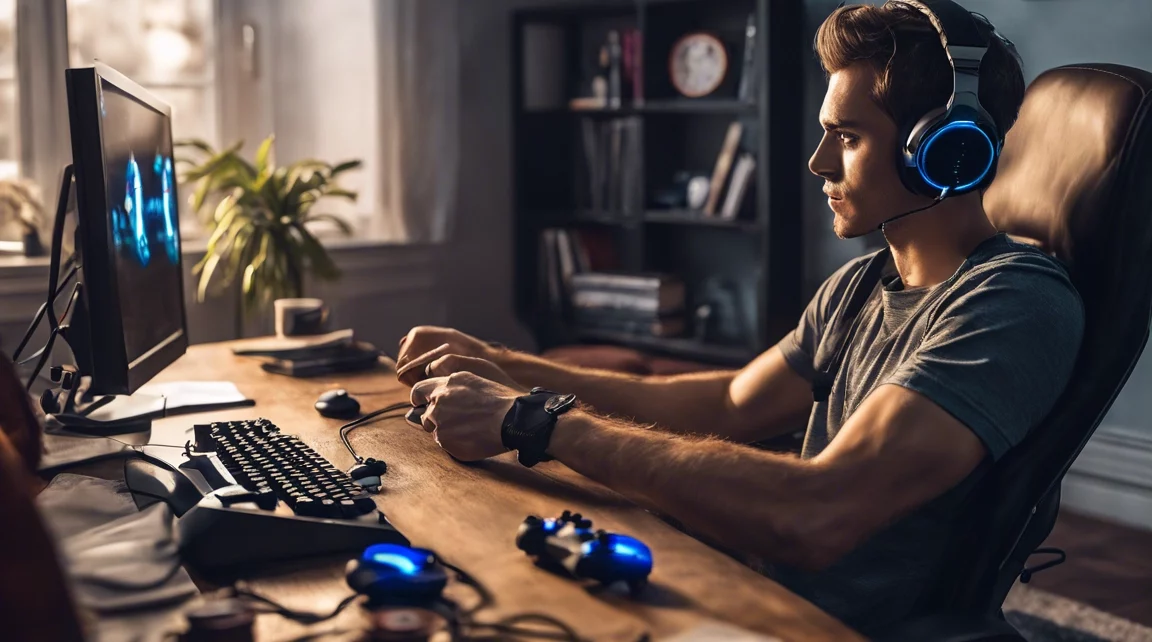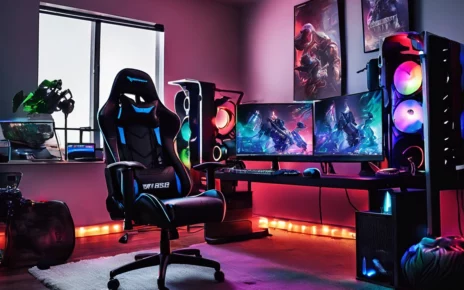Managing your gaming time is crucial for maintaining a healthy balance between fun and responsibilities. While gaming can be a fantastic way to unwind and escape, overindulgence can lead to negative consequences.
The Importance of Managing Your Gaming Time
Excessive gaming can result in neglecting vital responsibilities such as school, work, or self-care. Have you ever missed a meal or skipped personal hygiene because you were glued to your screen? You’re not alone. This behavior can snowball, leading to more serious issues down the line.
Finding Balance in Gaming It’s easy to get lost in a game world, but when gaming starts affecting your sleep, health, or social life, it’s time to hit pause and reassess your habits. Healthy gaming time management allows you to enjoy your favorite games while still fulfilling your real-life commitments.
Balancing fun and responsibility doesn’t mean you have to cut gaming out entirely; it’s about making smarter choices regarding when and how much you play. Establishing boundaries can keep gaming enjoyable without disrupting your daily life.
Proven Strategies for Effective Gaming Time Management
- Set Gaming Limits
Establish daily and weekly caps on your gaming time that fit your overall schedule. Knowing you have a set amount of time can help you prioritize other activities and prevent overindulgence. - Use Alarms and Timers
Simple tools like alarms can be lifesavers. Set reminders for breaks or to wrap up your gaming sessions, keeping you from losing track of time. - Create a Gaming Schedule
Slot specific times for gaming into your routine, just like you would for meals or workouts. This structured approach integrates gaming into your day without letting it take over. - Prioritize Your Tasks
Before diving into a game, make sure your important tasks are handled. This way, you can game with peace of mind, knowing you’re not neglecting responsibilities. - Keep a Gaming Journal
Track how much time you spend gaming daily. This can provide valuable insights into your habits and help you make informed adjustments.
Recognizing the Signs of Excessive Gaming
While video games can be an exciting escape, too much gaming can lead to negative effects on your health and well-being. Is spending 12 hours gaming too much? Most likely, yes. Long gaming sessions can impact your physical health, social life, and mental well-being.
Identifying Gaming Addiction
Recognizing the signs of gaming addiction is crucial. Are you neglecting important tasks or skipping social activities to play? Feelings of irritability or anxiety when you can’t game are red flags that your habits may be unhealthy.
Reflect on Your Habits
Ask yourself: How often do you lose track of time while gaming? Do you find it difficult to stop once you start? Honest answers to these questions can provide clarity about your gaming habits.
Sustaining a Balanced Gaming Lifestyle
Is two hours of gaming a lot? It depends on your daily routine. Two hours can be harmless if it’s part of a balanced day. The key is fitting gaming into your lifestyle healthily rather than letting it dominate.
Incorporate Breaks and Physical Activity
Integrating breaks into your gaming schedule is vital. Try the 20-20-20 rule: every 20 minutes, take a 20-second break and look at something 20 feet away. Stretch and move around to combat extended periods of inactivity.
Explore Other Hobbies
Diversifying your interests can reduce reliance on video games for fun. Whether it’s reading, playing sports, or engaging in creative activities, mixing in other pastimes enriches your life.
Maintain Social Connections
Keeping up with friends and family outside of gaming helps ground you. Regular social interactions—whether in person or online—remind you of the world beyond the screen and keep your social skills sharp.
By incorporating these strategies, you can enjoy gaming while maintaining a healthy, balanced lifestyle. Remember, it’s all about making informed choices and prioritizing your well-being!




